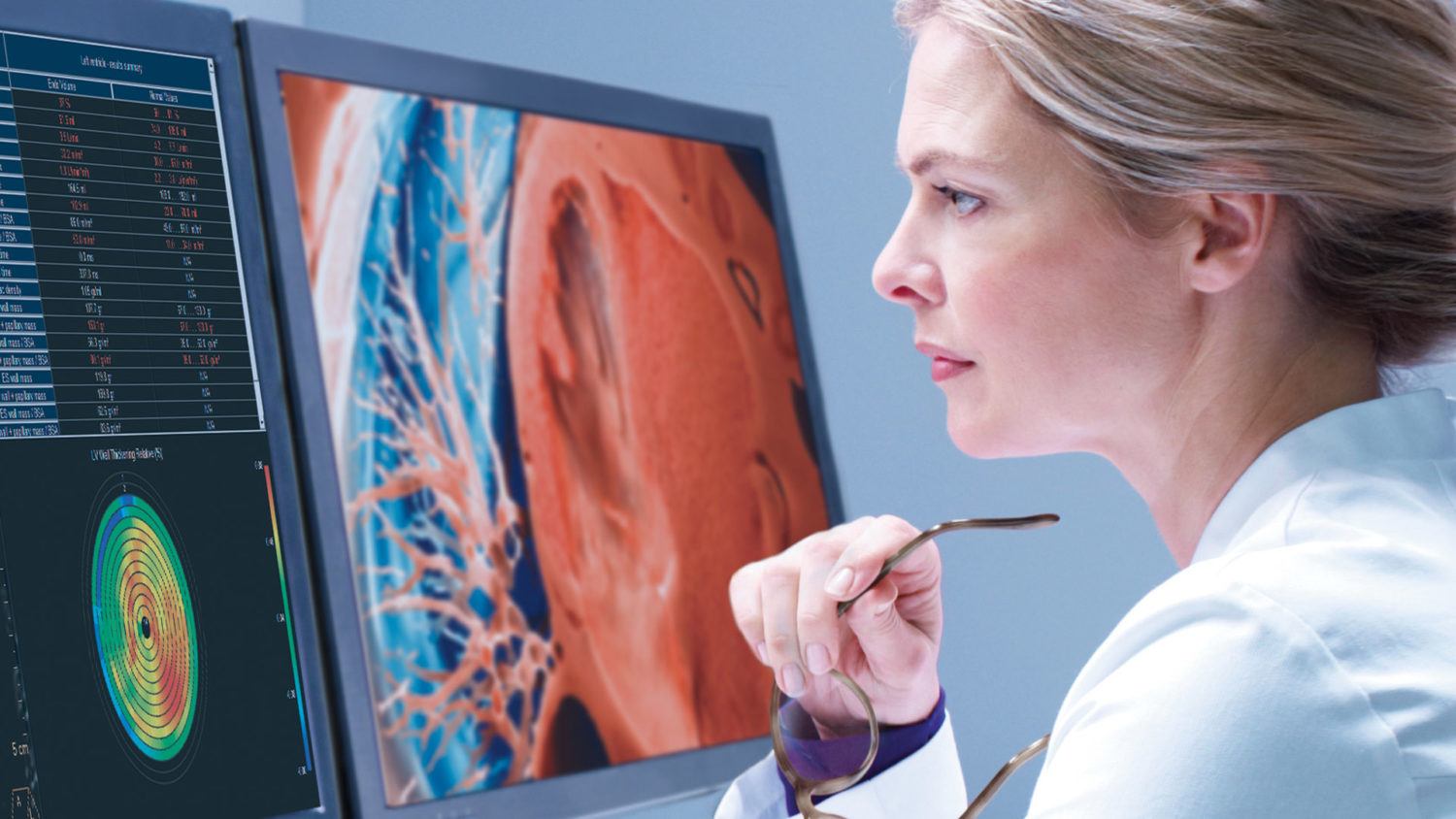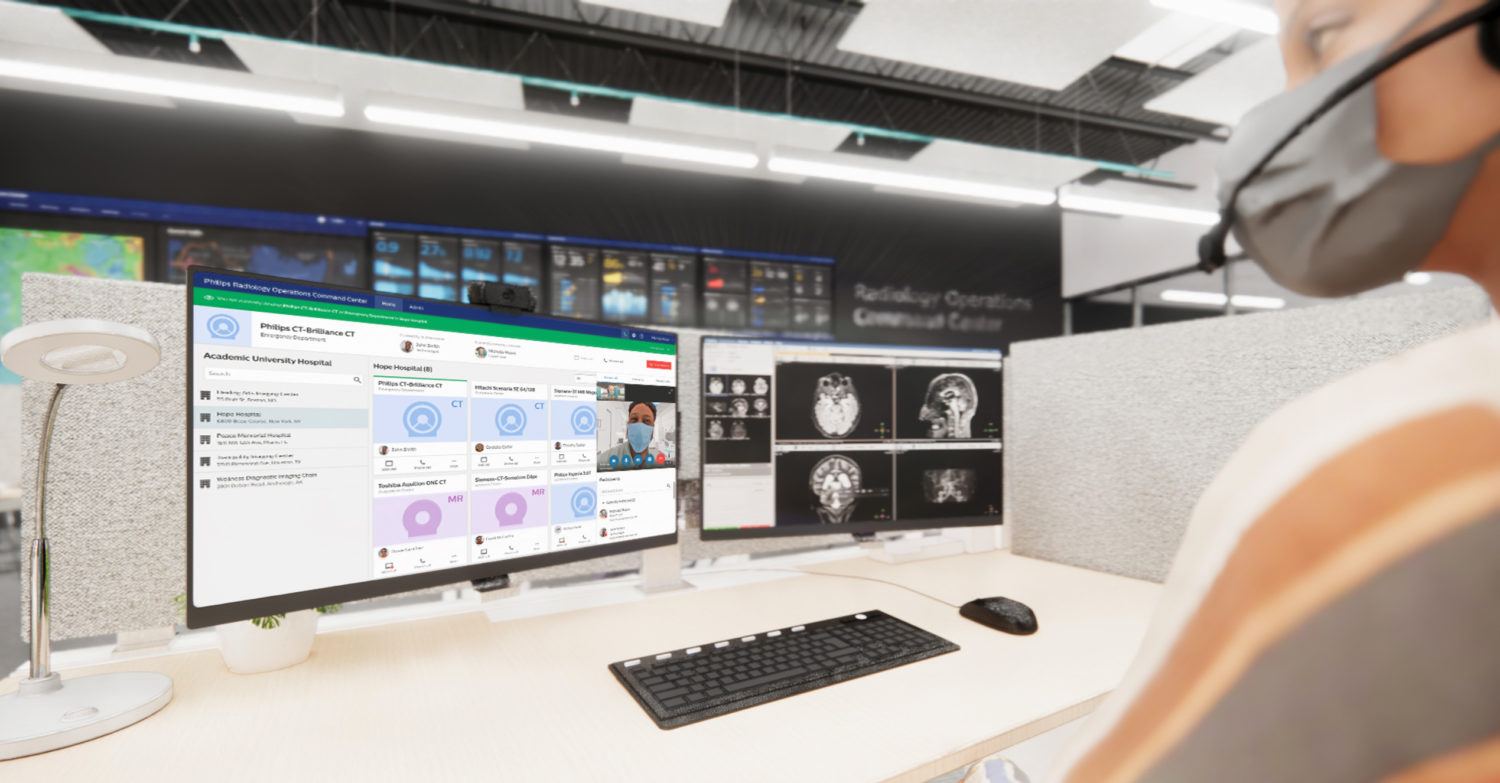
What You Should Know:
– Philips unveils a new multimodality virtual imaging command center that enables real-time, remote collaboration to broaden expertise between technologists, radiologists, and imaging operations teams across multiple sites via private, secure telepresence capabilities.
– In addition, Philips debuts
AI-enabled, automated Radiology Workflow Suite at RSNA 2020 to
advance precision diagnosis into clear care pathways and predictable outcomes.
Philips today announced the commercial launch of the industry’s first vendor-neutral, multimodality, radiology operations command center to add secure, digital, virtual scanner access to existing imaging installs across multiple systems and sites. Making its debut at the Radiological Society of North America (RSNA) virtual Annual Meeting (Nov 29 – Dec 5, 2020), Philips Radiology Operations Command Center enables virtualized imaging operations via a private, secure, and auditable telepresence platform. Philips is the first company to market a radiology command center that can integrate with existing technologies and systems outside Philips.
Vendor-Neutral Radiology Operations Command Center

As a multimodality (MR and CT), vendor-neutral digital hub,
the Radiology Operations Command Center connects imaging experts at a central
command center with technologists and onsite staff in locations across an
entire enterprise for real-time, over-the-shoulder collaboration and support.
Powered by Philips’ proprietary, patented operational performance management
technology, Radiology Operations Command Center enables remote access to
scanners across an imaging network. Its remote scanner connections are
compatible with older imaging platforms, allowing customers to operationalize a
‘Hub and Spoke’ model for imaging within their current install base. Radiology Operations
Command Center enables multiple use cases such as virtual imaging assistance,
virtual on-demand cross-training, and remote adjustment of imaging protocols
for greater standardization.
Expanding access to imaging services to enable expert
care
With Philips Radiology Operations Command Center, radiology departments can expand access to imaging across more locations and during more convenient hours to help meet patient demand, while increasing capacity and throughput within existing labor resources limits. Radiology Operations Command Center’s telepresence capabilities give imaging centers access to imaging experts allowing them to expand their capabilities to provide complex procedures and specialty subservices such as virtual colonoscopy, cardiac CT, Breast MRI, and prostate MRI. This allows imaging providers to improve imaging exam quality to help reduce or eliminate negative patient experiences such as procedure recalls or repeats, while also helping to improve talent retention within their organization by reducing the burden on their staff.
“We understand the pain points our customers face in terms of staff variability, training levels, and the need to maintain standardization of both the imaging quality and the patient experience – pain points that have been further accentuated by the COVID-19 pandemic,” said Kees Wesdorp, Chief Business Leader, Precision Diagnosis at Philips. “As an integral component of the Philips Radiology Workflow Suite being featured at RSNA this year, Philips Radiology Operations Command Center enables our customers to virtualize imaging by setting up a unique model of operations to seamlessly extend their expert talent across all sites. By working with advanced imaging partners like RadNet, we see the virtualization of imaging as a game changer in radiology workflow.”
AI-Enabled, Automated Radiology Workflow Suite
In addition, Philips announced its participation in the RSNA
2020 virtual event, featuring its Radiology Workflow Suite of end-to-end
solutions to drive operational and clinical efficiency through the
digitalization, integration, and virtualization of radiology. At RSNA 2020,
Philips will showcase a coordinated suite of offerings for the first time, introducing
key solutions that come together to enhance the entire radiology workflow to
address the most pressing operational challenges across diagnostic and
interventional radiology.
The Philips Radiology Workflow Suite helps drive
clinical and operational efficiency across all phases of the diagnostic
enterprise, including:
Scheduling and preparation – Patients anxious
about a potentially serious diagnosis can receive support even before arriving
for their exams, with personalized instructions and reminders delivered via
SMS-based communications from Philips Patient Management, making its
debut at RSNA 2020.
Image acquisition – Technologists under pressure
to achieve a first-time-right scan can now be supported virtually by remote
specialists through the Radiology Operations Command Center. Philips’ Collaboration Live, available on premiere Philips ultrasound
systems, also connects technologists with colleagues and specialists whenever
and wherever required. To streamline patient setup, the MR SmartWorkflow reduces and simplifies the number of
steps needed in a conventional MR exam workflow, using technology to automate
where possible. And the Radiology Imaging Suite provides the technologist
with a common imaging platform and more streamlined workflows by integrating
patient information and advanced visualization and analysis into one
easy-to-view console.
Image and data interpretation – Radiologists
confronted with increasing numbers of images to read can now receive a
prioritized worklist from the AI-enabled Workflow Orchestrator, along with an
intuitive summary of advanced visualization and analysis from various systems
presented in a single view. IntelliSpace Portal Advanced Visualization also
connects patient data across departments to create interoperability for greater
clinical intelligence and analysis, supported by AI-tools such as an algorithm
for the detection of COVID-19 lesions.
Reporting and results communication – To
streamline reporting, the Interactive Multimedia Reporting module of Philips’
Clinical Collaboration Platform, with embedded voice recognition capability,
helps radiologists cut turnaround time by entirely eliminating the need for
typing and entry of patient or clinical context. Exam data can be inserted
directly into reports, allowing radiologists to quickly review and approve
final reports while adding clinical context for referring physicians.
Shared decision-making, pathway selection and treatment – For referring physicians who need to offer confident recommendations on a patient’s care pathway, Philips’ Oncology Collaborator integrates radiology, genomics, lab, treatment, and other data into a single view so radiologists and oncologists, together with the extended clinical team, can see the whole patient profile at a glance and decide on a treatment pathway efficiently and collaboratively.
Outcomes and follow-up care – Radiology administrators are empowered to help patients keep to their treatment plans while improving overall operational efficiency with the real-time performance metrics and follow-up patient tracking provided by Philips Operational Informatics. The Philips Patient Portal empowers patients to access and share their information and access their results between facilities, physicians, specialists, and other healthcare providers.
“Precision across the diagnostic enterprise is more important today than ever before. To help meet our customers’ greatest challenges, we are pivoting away from standalone products to an integrated systems and solutions approach focused on data and intelligence to drive operational efficiency in an automated way for informed practice management and continuous improvement,” said Kees Wesdorp, Chief Business Leader, Precision Diagnosis at Philips. “Visitors to our Philips RSNA virtual site will experience Philips smart connected systems with solutions that optimize radiology workflows, generate insights from integrated diagnostics leading to clear care pathways and predictable outcomes for every patient.”
